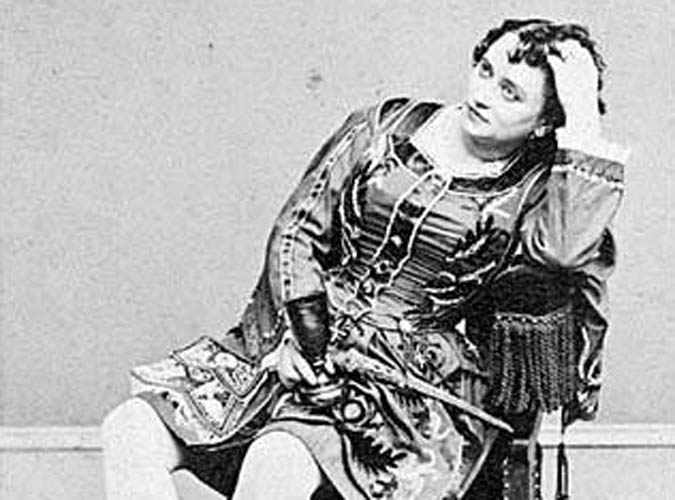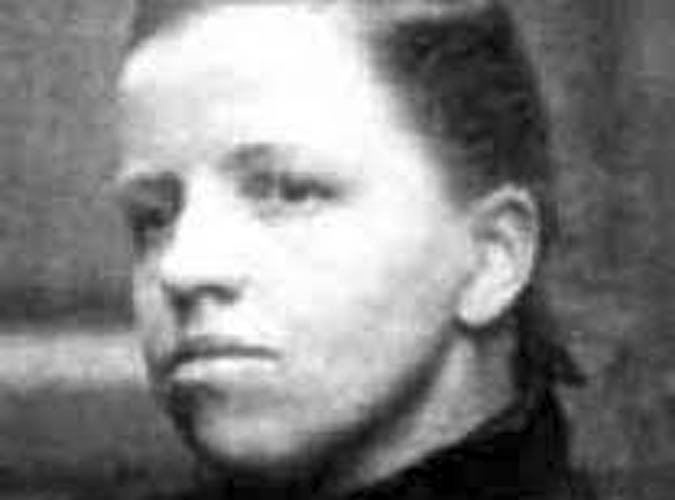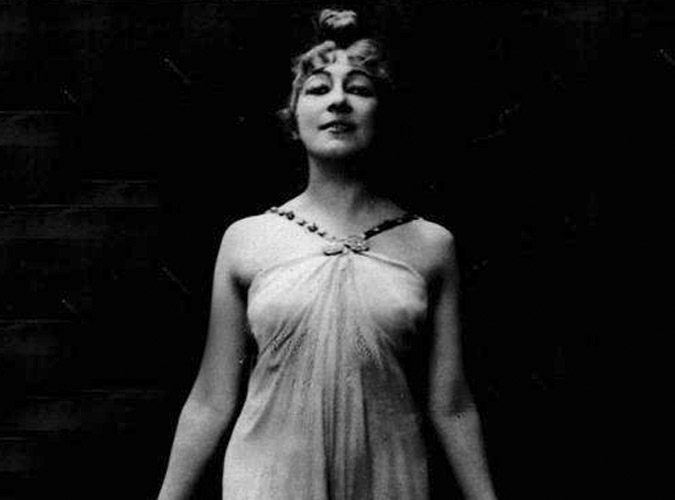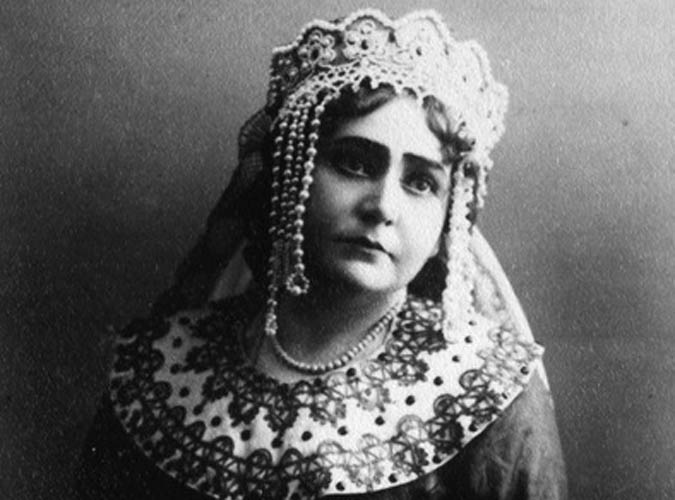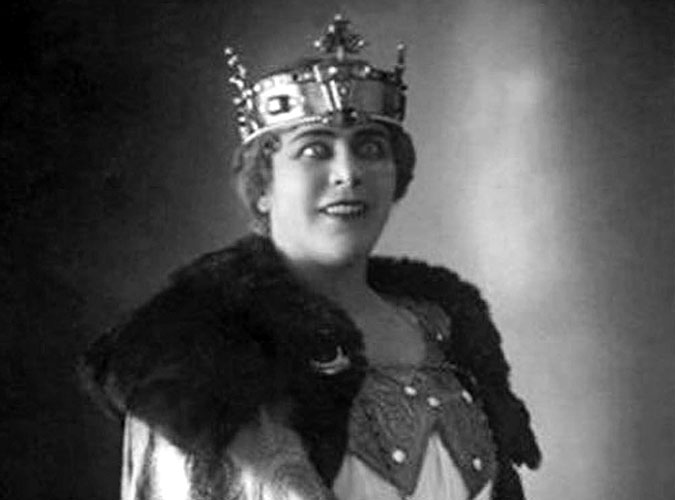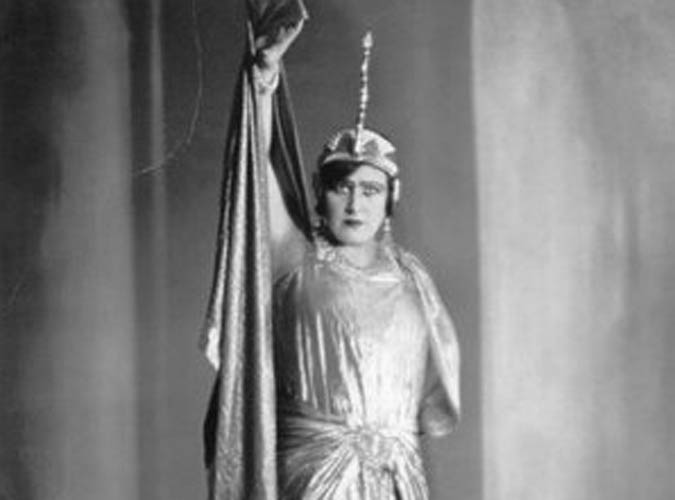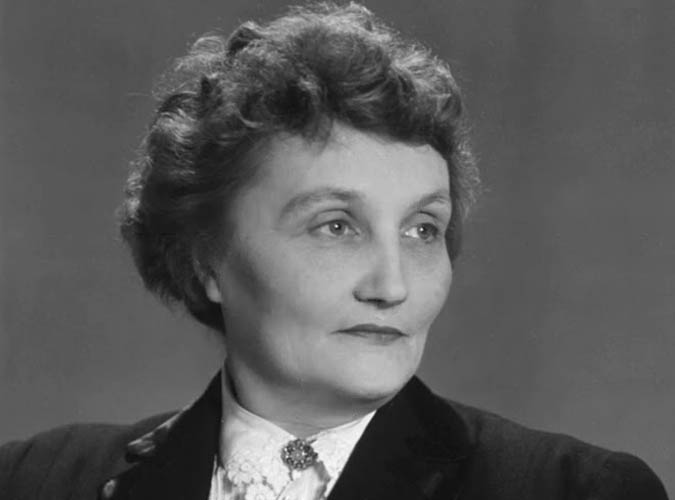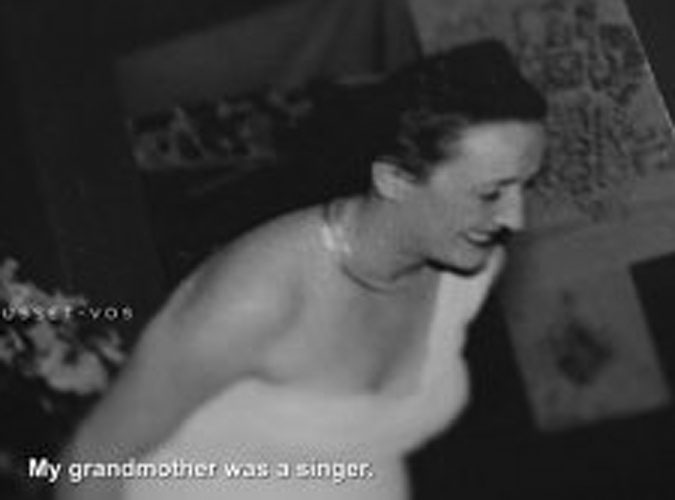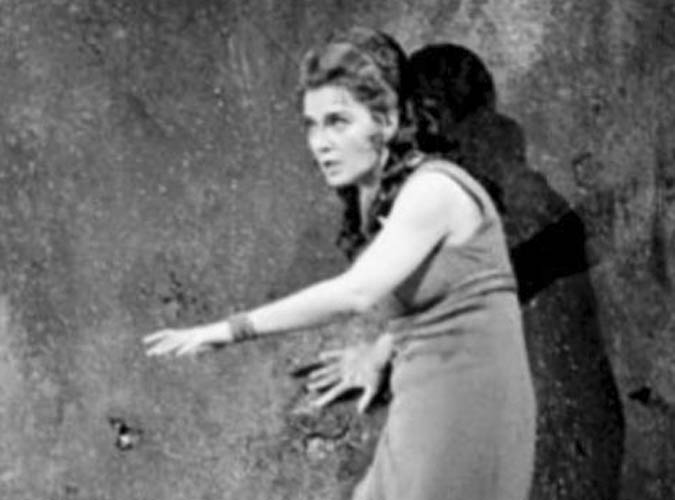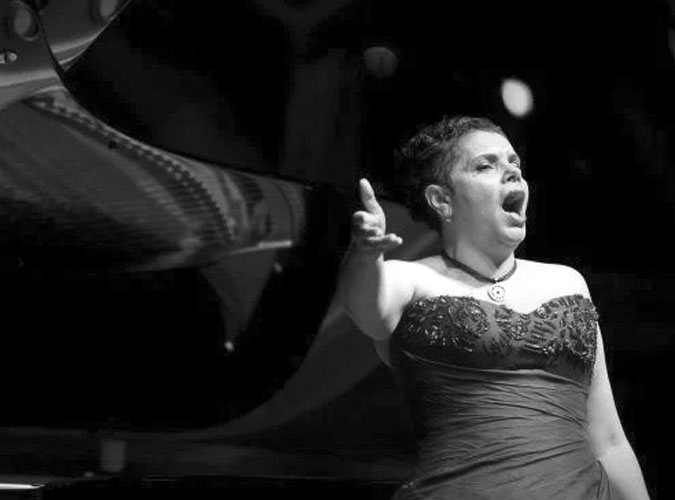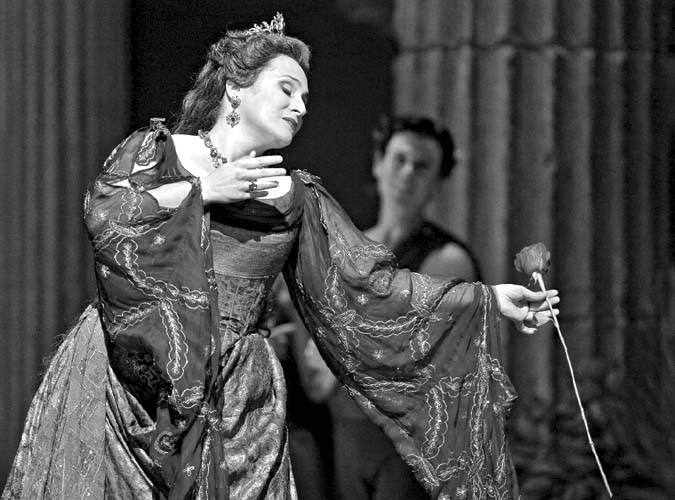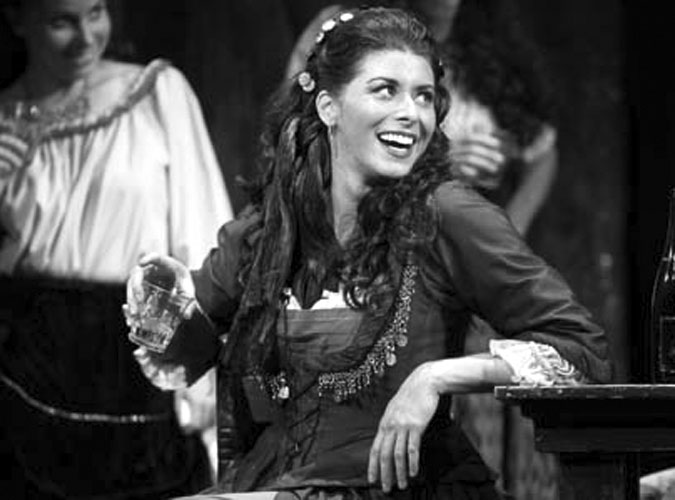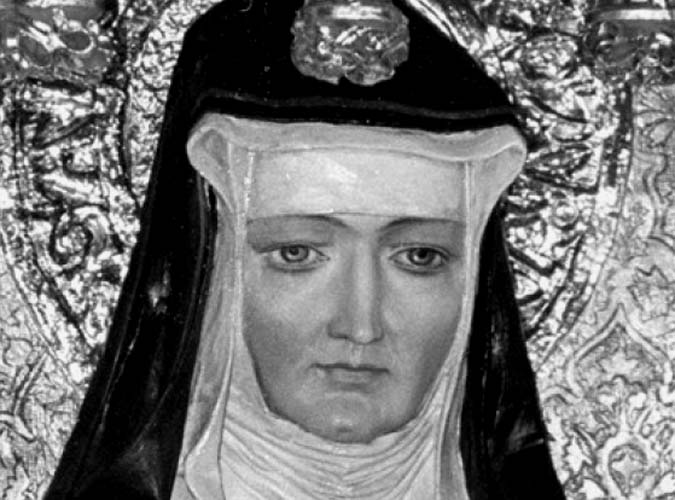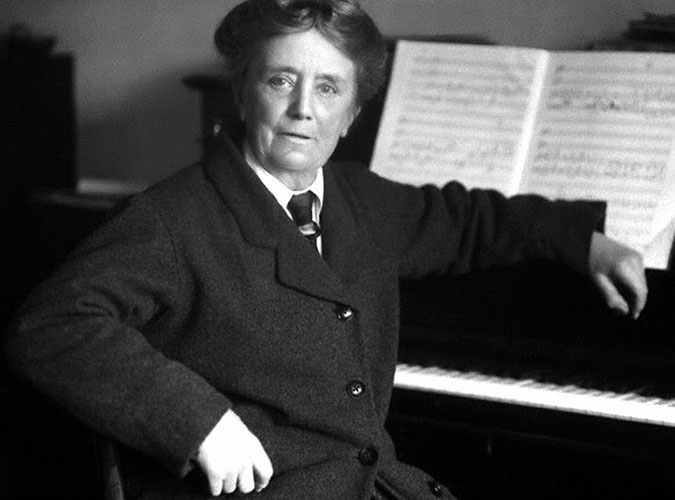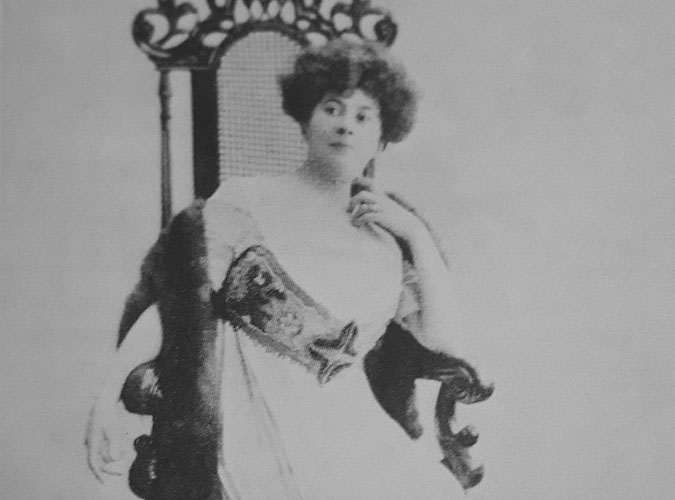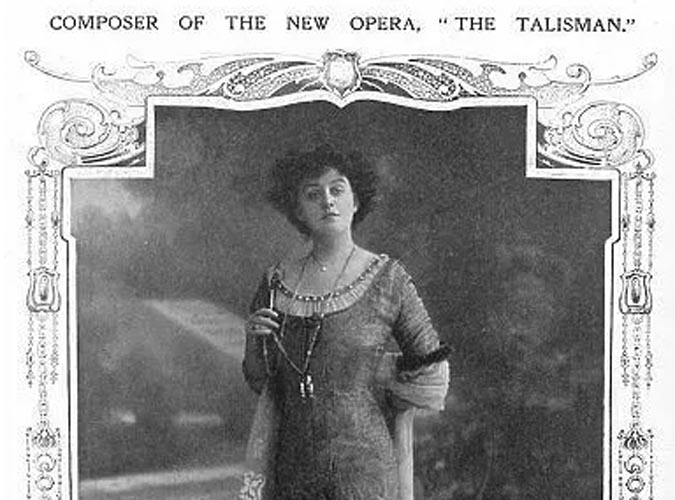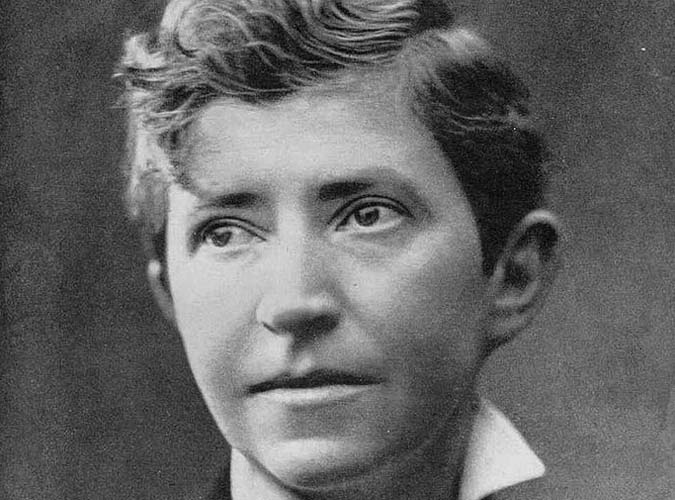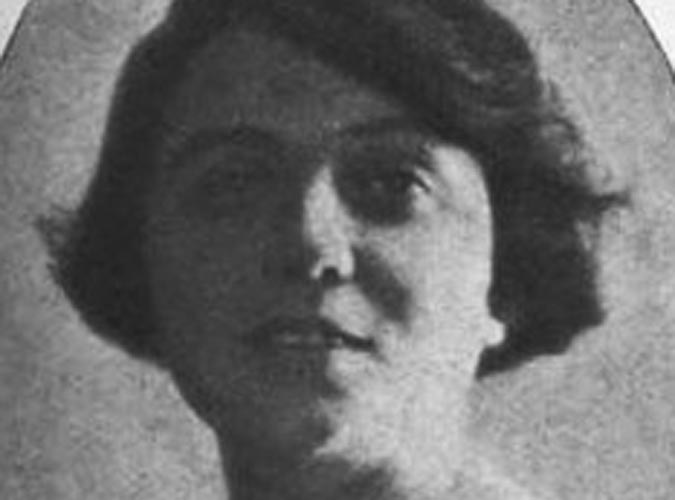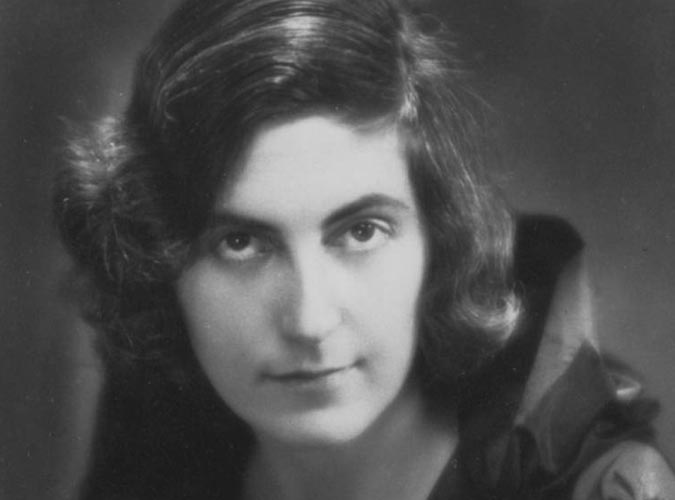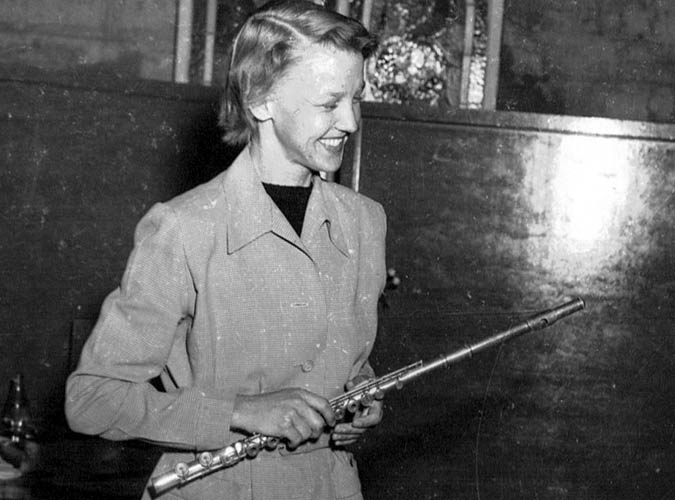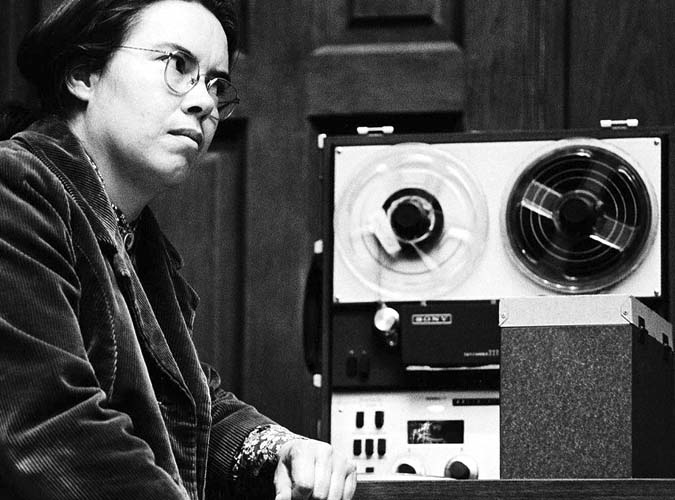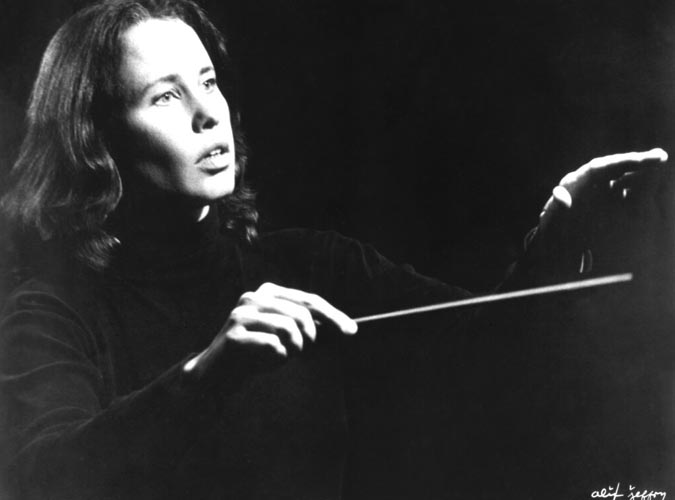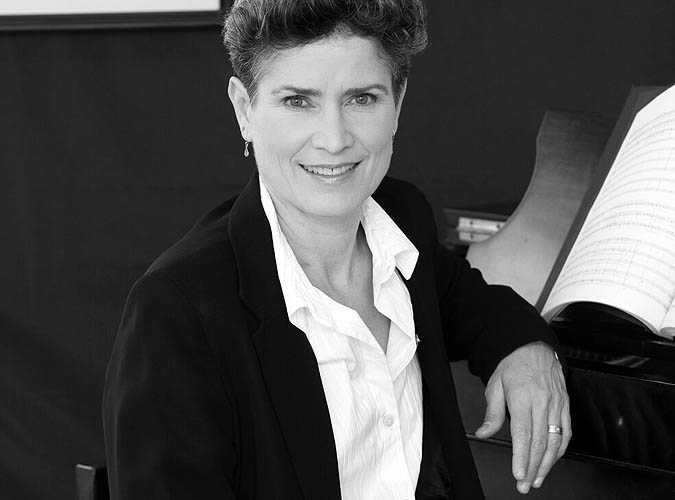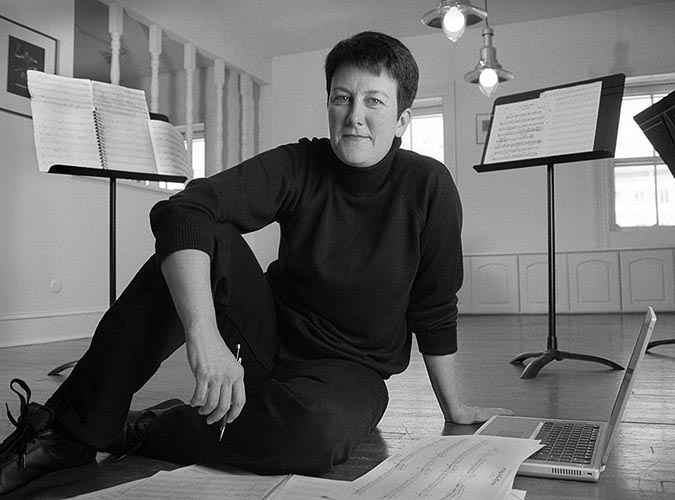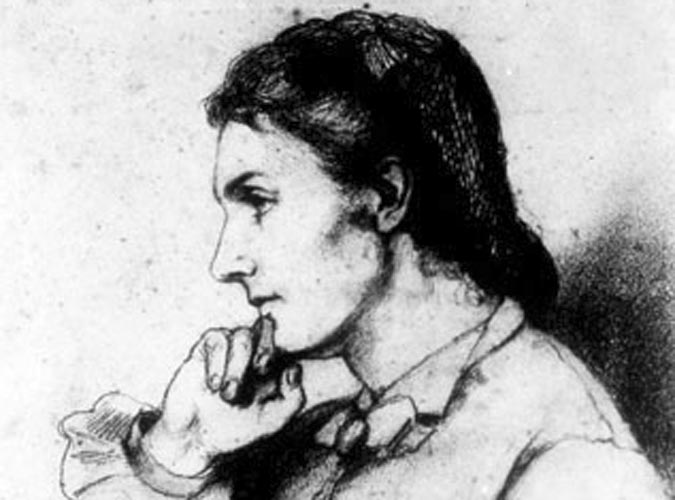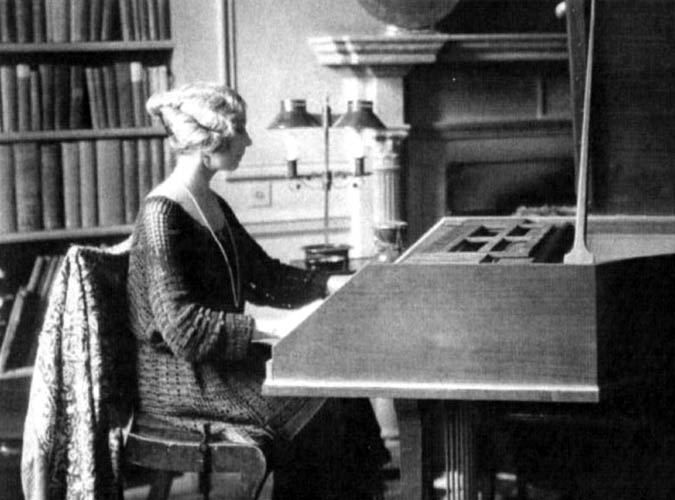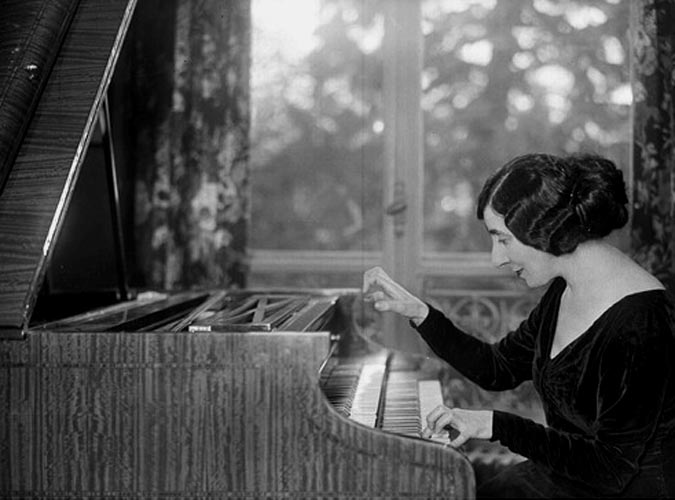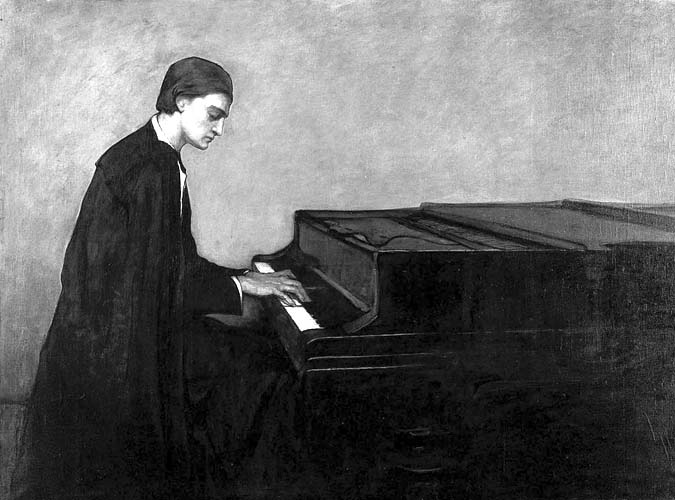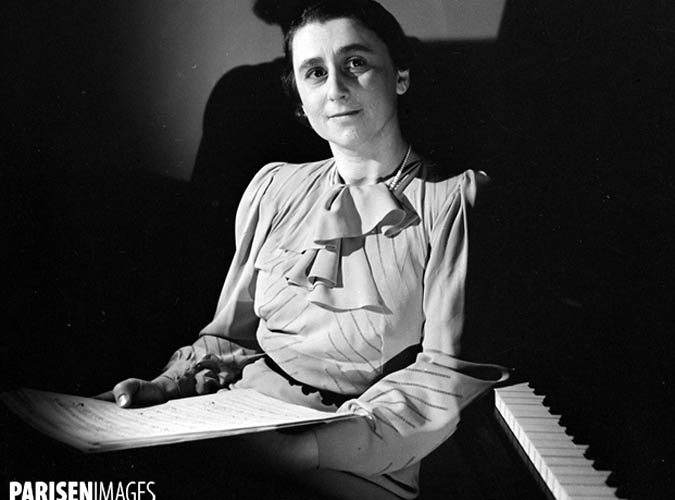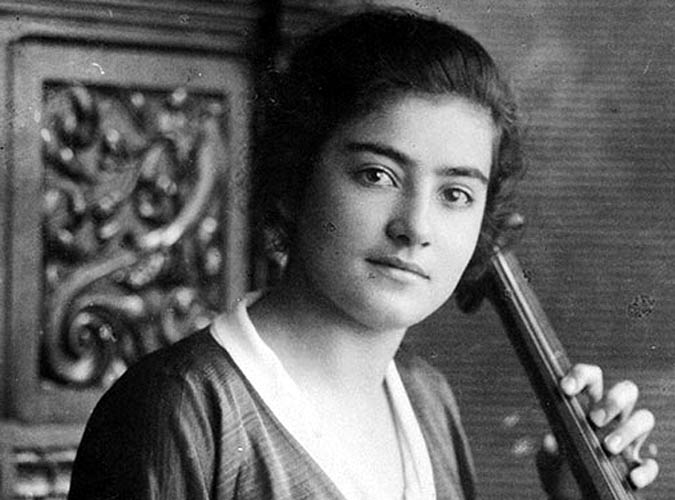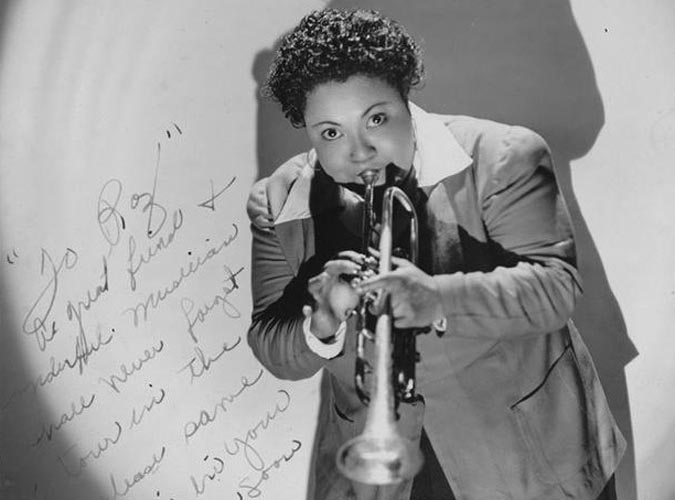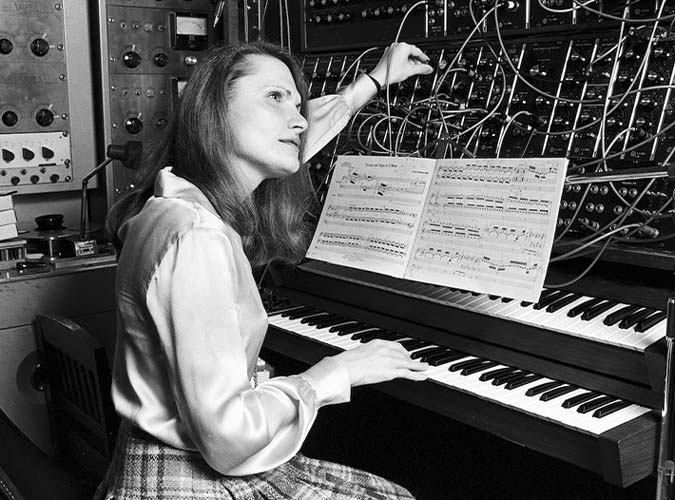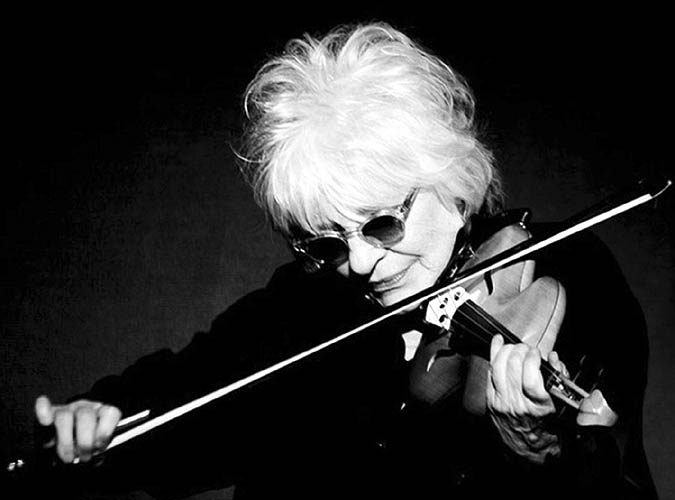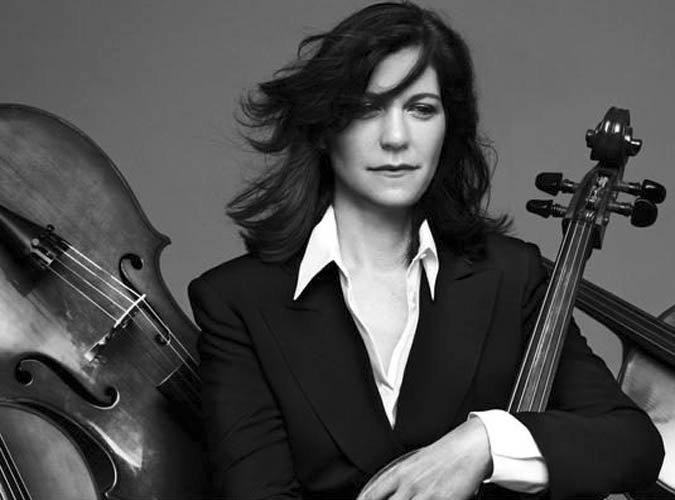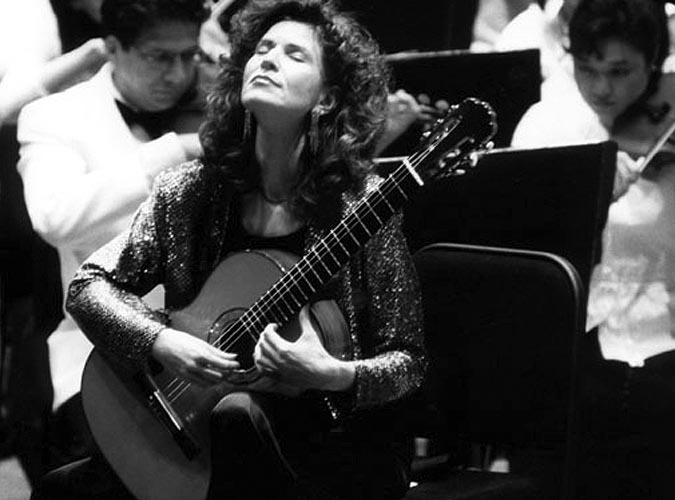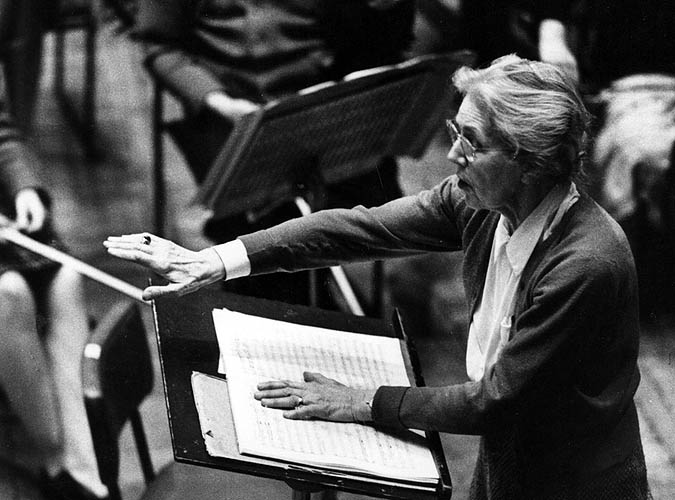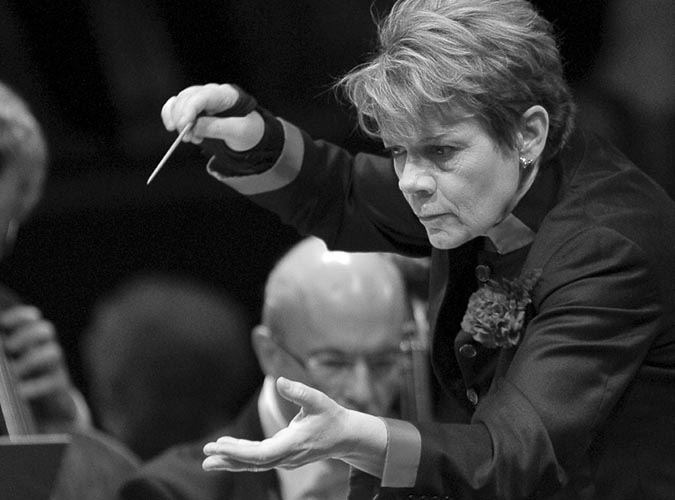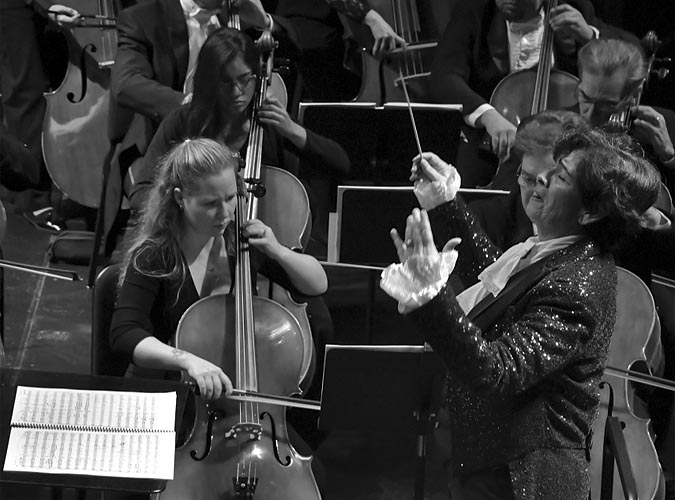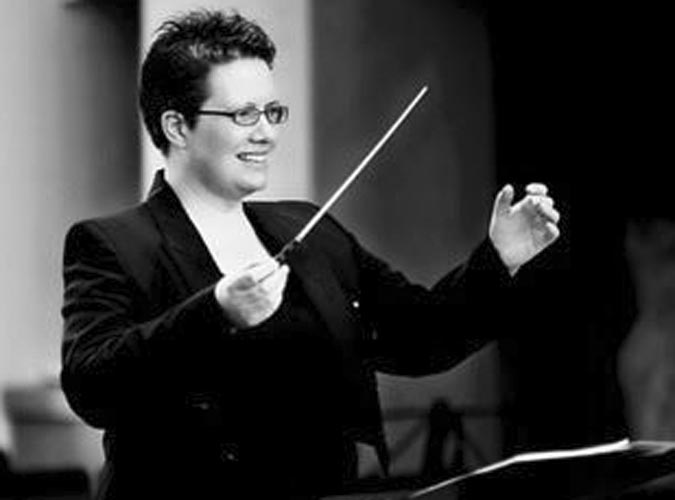Sapphic Opera & Classical Music
Can you imagine a life without music? I'm hi-fiving those of you who have ventured on to this page from one of my sapphic landing pages but may consider Classical Music / Opera = Snoreville city! Groovers, give classical music and opera a try and discover some trailblazing sapphic classical musicians and composers! If it wouldn't have been for the progression of music from church chancels to folk to classical music and opera ... we wouldn't have arrived at P.O.P (popular) music with it's slick multitude of genres.Regardless of they were hetty (straight) or queer, female musicians and composers in history faced a huge mighty high, male wall to break through regarding: music education (which was only for noble women and ... nuns!), the general snobbery of vocalists vs instrumentalists, which instruments were feminine enough for women to play (4 instruments?), performing to the PUBLIC and publishing their skilful compositions in their own name! ...
A Confession!
Hands-in-the-air confession! Growing up as a cool preppy punk > indie > New Order / PSB > trip hop kid, I had a great distain for opera and classical music! Through my love of movies, however, my heart really missed-a-beat to my unexpected introductions to uber cool opera arias and classical music, and some had ... sapphic undertones! Opera Arias via
Diva (1981), directed by Jean-Jacques Beineix which featured Wilhelmenia Fernandez breath-takingly perform "La Wally" composed by Alfredo Catalani, to a libretto by Luigi Illica. Surely, your heart can't help but melt?
Classical Music via
The Hunger (1983) directed by slick Tony Scott which featured Léo Delibes' Lakmé: The Flower Duet and, Franz Schubert's Piano Trio No. 2 in E-flat major.
Forevermore, I have lovely memories of listening to my CLASSY mixtape, cruising down picturesque Princess Street, Edinburgh, with my soooooooo missed, adorable Mummy and my gorgeous two dackles in the back..
Saluting The Courageous Lesbian (& Hetty) Composers, Classical Musicians & Opera Singers
Though I researched hard, this section of lesbian opera singers & lesbian classical musicians proved really hard for finding lesbians to girly salute to. Even my fab cake boy friend, Baroque Boy (a professional baroque flautist and graduate of the Royal College of Music), found it hard to suggest some stellar lesbian opera singers and classical musicians to include herein. Why?
At first I thought that there is not enough documentation on the internet regarding lesbian opera singers and classical musicians and, like many areas there is still sadly a taboo about lesbians being out. Then I realised there was a bigger picture to consider - that music performance and composition the past had been very boystown.
Music Education - Only For Posh Ladies & ... Nuns!
Historically, noble ladies were taught to play music (also, read & write) as part of their "desirable qualities" to attract a well-to-do noble / upper class man in marriage. "Lush" Courtesans (you define as you wish) with a courtly, wealthy, or upper-class clientele were expected not only to be able to hold their own in educated conversation but also be accomplished in music and art. Sometimes female musicians could perform for the upper classes under the label as courtesans even if they did not offer "special" services. Some women learnt music as they fortunately came from a family of musicians.
Less well-off women who wished to be literate and creative (e.g. St. Hildegard von Bingen) had to run into convents! In medieval and Renaissance convents, musicianship was seen by the convent's accountant, as a great revenue generator. The nuns' proficiency in music attracted money from rich benefactors who wanted their weddings, requiems or other liturgical celebrations to be undertaken in the eyes of God and with great grandeur. Adnvanced music education also made the convent attractive to women from affluent families who found convent life a haven to pursue intellectual and creative activities and, who wished to escape forced marriages. Most importantly, these noble women would enter the convent with generous dowries. Professor Laurie Stras, of Huddersfield University, estimates that in the 15th century, some 20 per cent of the female population of Catholic Europe lived in convents. Considering only women of noble birth, the figure rose to an astonishing 50%! As well as musicianship, in order to comprehend biblical teachings, convents educated nuns in: reading and writing in Latin, grammar, morals, rhetoric, arithmetic, geometry and astronomy with access to the convent's extensive library. They were are also taught spinning, weaving and embroidery and during the Renaissance, nuns were taught to paint and some became well-known artists.
And of course, a wee aside: one of the oldest schools of music (and dance) is The Conservatoire de Paris, founded in 1795. Though The Paris Conservatoire was open to male and female students, it was not until 1870 (75 years later) that female students were allowed to take classes in composition or theoretical subjects like harmony, counterpoint, and fugue (way out of my league, so I'm linking to Classic FM's useful glossary of musical terminology).
Vocalists vs Instrumentalists Haughtiness
It is thought that, singing, was given more respect than playing an instrument. Though countertenors, castrati and boy sopranos could sing in the same range as women and were used for female roles their voices just weren't on par with female vocals. Thus, female singers were given more opportunities than female musicians. Female vocalists who had a high ranking patron backing them received even more musical acknowledgement. One of the earliest and most famous ensembles of professional female singers (who were exclusively noble or upper class women) was the Concerto delle Donne ('consort of ladies), established in 1580 by The Duke of Ferrara Alfonso II d'Este in Renaissance Italy.
Underlying Sexism Of Playing An Instrument
An enlightening documentary (Fanny: The Other Mendelssohn) on fabulous (hetty) Fanny Mendelssohn ((1805 – 1847), a pioneering lady composer, shed further light and led me to these startling quotes on etiquette for women written by men, on a blog:
"Imagine how unlovely it would be to see a woman play drums, fifes or trumpets or other like instruments; and this because their harshness hides and destroys that mild gentleness which so much adorns every act a woman does."
Quote: 1528 - "Il libro del cortegiano" (The Courtier's Book) by the Italian Renaissance author Baldassare Castiglione (1478-1529)
"The Harpsichord, Spinet, Lute and Base Violin, are Instruments most agreeable to the Ladies: There are some others that really are unbecoming the Fair Sex; as the Flute, Violin and Hautboy; the last of which is too Manlike, and would look indecent in a Woman's Mouth; and the Flute is very improper, as taking away too much of the Juices, which are otherwise more necessarily employ’d, to promote the Appetite, and assist Digestion."
Quote: 1722 - "The Young Ladies Conduct: Or, Rules for Education under Several Heads; with Instruction upon Dress, Both before and after Marriage. And Advice to Young Wives" book by Music Theorist, John Essex.
Classical guitar was also deemed a suitable instrument for women because it was made for "simple, unpretentious music, most of all in a subordinate role as an accompanying instrument." OMG! Pre-19th century, most musical instruments were deemed un-lady like with case in point = a woman straddling a curvaceous cello ... GASP! ... would give people immoral ideas! Seriously? Can you imagine reading this in a recently published book / article + in the time of our current, revolutionary free musical stage via the WORLD WIDE web through (trailblazing) MySpace > YouTube > hmmm ... TikTok. So it seems that pre-19th century, ladies could only play the harpsichord, piano, organ, harp, lute and guitar which would keep their bodies in feminine and graceful poses without "facial or physical contortions" while playing them. That equates to one instrument (the harp) out of circa 20 instruments that make up a modern orchestra!
Performances By Female Classical Musicians
Even if women gained a music education, female musicians were mostly confined to performing music, ONLY in their posh parlours, at elite private concerts and in regal courts. For example, French harpsichordist and composer Élisabeth Jacquet de la Guerre (1665-1729) played the harpsichord in the Court of Louis XIV. I'm still researching who was one of the first female musicians to perform on stage. For the moment I will suggest the Italian composer, violinist and opera singer Maddalena Laura Sirmen nee Lombardini (1745 – 1818) who performed her own violin concerto at the Concert Spirituel in Paris in 1768 (she was more known for performing with her renowned violinist husband Ludovico Sirmen). Please do email me and correct me. Child prodigy Clara Schumann née Wieck (1819 – 1896) made her first official piano performance at aged nine on October 28, 1828 at the Altes Gewandhaus (concert hall founded in 1781) in Leipzig. She returned eight years later, 1836, to première her Piano Concerto (aged 16!).
Though pianist and composer Mary Wurm (1860 - 1938) is credited as founding and conducting the first women's orchestra in Berlin in 1898, guess when The Vienna Philharmonic Orchestra, founded in 1842, voted to accept women members of the orchestra - drum roll ... 27 Feb 1997! The world's oldest orchestra is The Royal Danish Orchestra with a history stretching back to 1448 - it invited it's first female member into it's Orchestra in 1926.
Published Compositions By Women Composers
Gifted women composers were often hindered in publishing their own noteworthy compositions / scores, like (to be hugely applauded) Fanny Mendelssohn whose legendary brother, German composer and pianist, Felix Mendelssohn and her Father, actively discouraged her to publish in her own name even though Felix published some of her work under his name. Indeed, when Queen Victoria who described Felix as "the greatest musical genius since Mozart", began to sing to Felix her favourite song of his, Italien, he embarrassingly confessed: it was in fact quilled by his sister, Fanny. It had been printed under Felix's name!
Some rare dates in female music publication history:
- Circa 1557: The first published composition by a woman composer, was by Gracia Baptista (1530 - 1557), a Spanish Roman Catholic nun, who composed an organ setting of the hymn Conditor alme in Luis Venegas de Henestrosa's Libro de cifra nueva para tecla, harpa, y vihuela.
- 1568: The first female composer to have had an entire book of her music printed and published, Il primo libro di madrigali (1568), was by Maddalena Casulana (c. 1544 – c. 1590) who was an Italian composer, lutenist and singer and whose patron was Isabella de' Medici.
- 1625: The first opera composed by a woman was by Francesca Caccini (1587 - 1640) titled La liberazione di Ruggiero dall'isola d'Alcina which was premiered in Florence in 1625. Her father Giulio Caccini was a noted Italian composer.
Regardless if they were hetty or queer, no wonder why women composers and musicians are sadly so scarce in history.
Apropos
True of False: In 2024, in the UK, 6% of women in music have been discriminated against, due to their gender?
False! Based on over 2,500 responses, for The Women Musicians Insight Report by musicianscensus.co.uk - 6% of male musicians have been discriminated against due to their gender while 51% of women have experienced gender discrimination while working as a musician. The report revealed that in the UK music industry:
- Sexual harassment - 33% of women reported being sexually harassed while working as a musician, and 25% have witnessed sexual harassment of others in music. One can only imagine this figure to be higher in the light of the latest entertainment industry scandals.
- Gender discrimination - 51% of women have experienced gender discrimination while working as a musician.
- Gender pay gap - Despite that women musicians are qualified to a higher level than men, with 14% more women having a music degree and 15% more having a postgraduate music qualification, female musicians earn nearly a tenth less than male i.e in the report the average annual income for a female musician was found to be approximately £19,850, compared to £21,750 for men.
- Sexual orientation discrimination - 37% of LGBTQ+ musicians have experienced or witnessed discrimination based on sexuality whilst working as a musician yet, only 27% reported it.
- Sexual orientation pay gap - in the report the average annual income for a LGBTQ+ musician was found to be approximately £17,600, compared to £21,750 for straight male musicians which equates to a pay gap of around £4,000.
BTW: Unexpected Queer Operatic Terms I Came Across:
During my research on lesbian opera singers I came across two terms, that surprised me:
Travesti
Travesti (meaning "disguised" in French) which I had not come across before though I could suss the meaning. Travesti was a theatrical term referring to the portrayal of a character in a ballet, opera or play, by a performer of the opposite sex. Because the presence of actual women on stage was considered immoral (seriously?), until the late 17th century (covering Shakespearian plays) in England and the late 18th century in the Papal States, women were portrayed by male actors in drag.
On the English stage, with the Restoration of Charles II in 1660, women started performing, both in the female roles and, in male roles. Of the 375 plays produced in London, between 1660 and 1700, it has been estimated that nearly a quarter contained one or more roles performed by actresses dressed as men.
Uranian
Opera Singer Felicita Vestvali was bizarrely described as being "Uranian" by Rosa von Braunschweig, a longtime friend who wrote in the Yearbook of Intermediate Sexual Types (1903). I had never come across the term "Uranian". The term "Uranian" was first published by Karl Heinrich Ulrichs (1825 – 95) in a series of five booklets (1864–65) collected under the title "Forschungen über das Räthsel der mannmännlichen Liebe" (Research into the Riddle of Man–Male Love). Ulrichs derived the term "Uranian" (Urning in German) from the Greek goddess Aphrodite Urania, who was created out of the god Uranus'... testicles. "Uranian" represented the homosexual gender.
The term "Dionian" (Dioning) represented the heterosexual gender and was derived from Aphrodite Dionea. Apparently, Ulrichs developed his terminology before the first public use of the term homosexual, which appeared in 1869 in a pamphlet published anonymously by Karl-Maria Kertbeny.
At first I thought how could Rosa von Braunschweig label her friend, popular Opera Singer Felicita Vestvali, so disturbingly as "Uranian"? On further investigation I discovered, that I think she was defending homosexuality. To be honest, I am worried to quote it here as it is published as a "Google book" and I dont want Google to de-index this page. I am already dicing with de-indexation fire due to possible copyright infringement of images. Search for Rosa von Braunschweig on "Women as Hamlet: Performance and Interpretation in Theatre, Film and Fiction" by Tony Howard
Check out more "delightful" Lesbian terms through history.
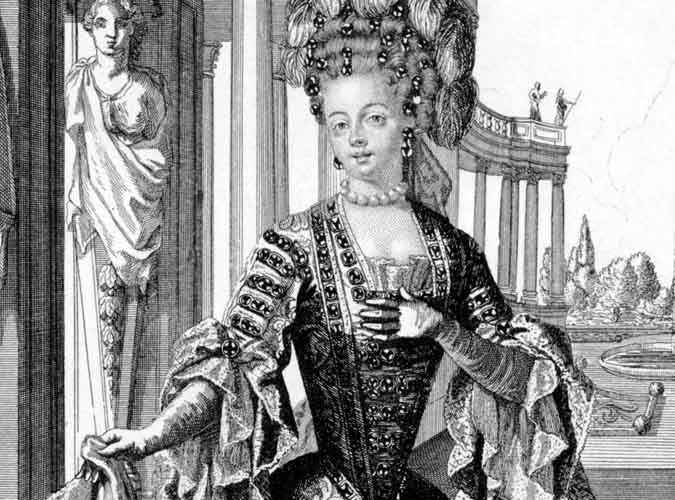
Julie d'Aubigny, Mademoiselle Maupin
French Opera Singer: 1670/1673 - 1707
La Maupin was a cross-dressing bi opera singer and skilled swords-woman who killed at least three men in duels. Touché! Swashbuckling Julie d'Aubigny, aka La Maupin, was a... more
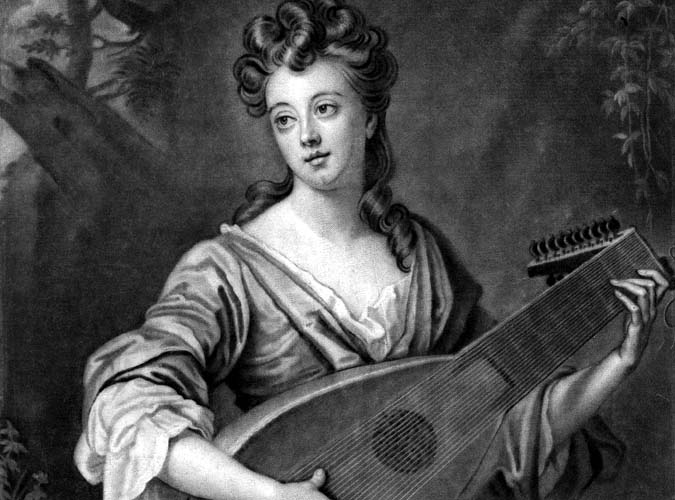
Arabella Hunt
English Soprano & Lutenist: 1662 – 1705
Arabella Hunt was employed at the royal court (St James's Palace) as a singer/soprano and lutenist. She was well thought of by Queen Mary, and taught singing to Princess Anne. She caused a tabloid scandal!... more
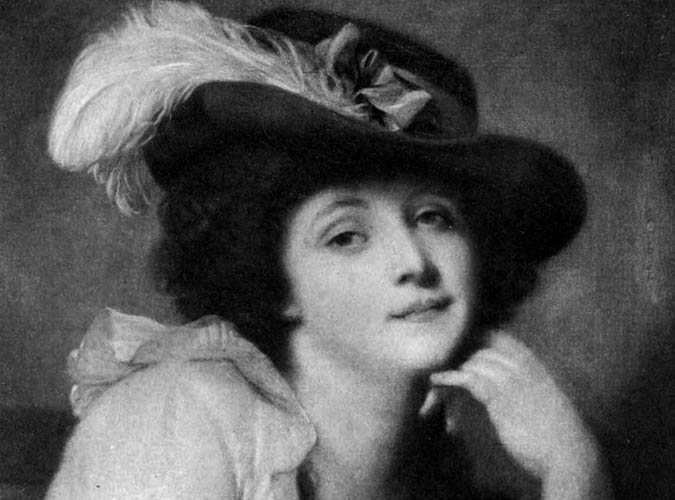
Sophie Arnould
French Opera Singer: 1740 - 1802
Sophie Arnould was the prima donna of the Paris Opéra of her day. She obtained considerable success in operas by Christoph Wilibald Gluck, François Francoeur, Jean-Philippe Rameau, and Pierre-Alexandre Monsigny.
